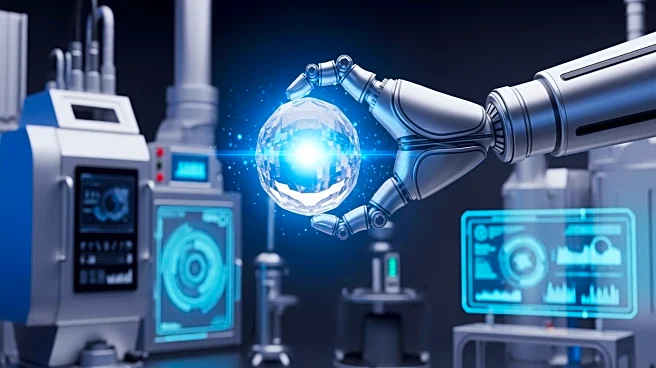What's Happening?
Square Enix has announced a strategic partnership with the Matsuo Laboratory at the University of Tokyo to enhance its game development processes through AI technologies. The collaboration aims to automate 70% of quality assurance (QA) and debugging tasks
by the end of 2027. This initiative is part of Square Enix's 'Reboots and Awakens' medium-term business plan, which seeks to overhaul the company's development and publishing strategies. The use of generative AI is expected to improve the efficiency of QA operations, a move that could significantly impact the company's workforce. Automation tools are already prevalent in game development, but Square Enix's goal to automate the majority of QA labor within two years is ambitious. The company has a history of layoffs following efficiency-driven initiatives, raising concerns about potential job losses among its QA workforce.
Why It's Important?
The move by Square Enix to automate a significant portion of its QA tasks using AI technologies could have substantial implications for the gaming industry. By reducing reliance on human QA testers, the company may lower operational costs and increase development speed. However, this shift could lead to job losses, affecting employees in the QA sector. The partnership with the University of Tokyo highlights the growing role of AI in game development, potentially setting a precedent for other companies to follow. As automation becomes more integrated into development processes, the industry may see a transformation in workforce dynamics, with a greater emphasis on AI-driven solutions.
What's Next?
Square Enix's plan to automate QA tasks is likely to prompt reactions from various stakeholders, including employees, industry analysts, and competitors. The company may face scrutiny over potential layoffs and the ethical implications of replacing human workers with AI. As the partnership with the University of Tokyo progresses, further developments in AI technology could emerge, influencing the broader gaming industry. Competitors may also explore similar initiatives to enhance efficiency and reduce costs. The impact on the workforce and the effectiveness of AI-driven QA processes will be closely monitored as Square Enix moves forward with its business plan.
Beyond the Headlines
The integration of AI into game development raises ethical and cultural questions about the future of work in the industry. As companies like Square Enix pursue efficiency through automation, the balance between technological advancement and workforce sustainability becomes a critical issue. The potential for AI to replace human roles may lead to discussions about the value of human creativity and the importance of maintaining diverse employment opportunities. Long-term shifts in industry practices could emerge, with AI playing a central role in shaping the future of game development.















